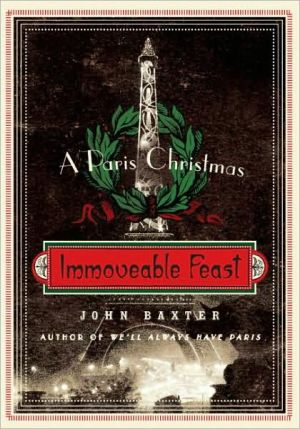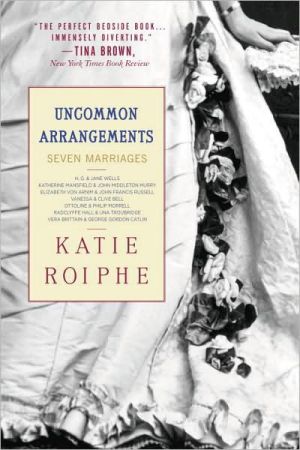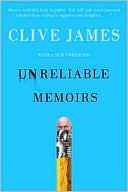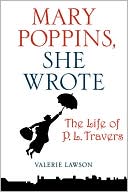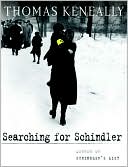Immoveable Feast: A Paris Christmas
A witty cultural and culinary education, Immoveable Feast is the charming, funny, and improbable tale of how a man who was raised on white bread—and didn't speak a word of French—unexpectedly ended up with the sacred duty of preparing the annual Christmas dinner for a venerable Parisian family.\ Ernest Hemingway called Paris "a moveable feast"—a city ready to embrace you at any time in life. For Los Angeles–based film critic John Baxter, that moment came when he fell in love with a French...
Search in google:
A witty cultural and culinary education, Immoveable Feast is the charming, funny, and improbable tale of how a man who was raised on white bread and didn't speak a word of French unexpectedly ended up with the sacred duty of preparing the annual Christmas dinner for a venerable Parisian family. Ernest Hemingway called Paris "a moveable feast" a city ready to embrace you at any time in life. For Los Angeles based film critic John Baxter, that moment came when he fell in love with a French woman and impulsively moved to Paris to marry her. As a test of his love, his skeptical in-laws charged him with cooking the next Christmas banquet for eighteen people in their ancestral country home. Baxter's memoir of his yearlong quest takes readers along his misadventures and delicious triumphs as he visits the farthest corners of France in search of the country's best recipes and ingredients. Irresistible and fascinating, Immoveable Feast is a warmhearted tale of good food, romance, family, and the Christmas spirit, Parisian style. The New York Times - Dawn Drzal Immoveable Feast is entertaining, often very funny and surprisingly full of (mostly reliable) information—Baxter, after all, is not a professional cook; he generally writes about the cinema. Hemingway called Paris "a moveable feast," but it's the very solidity of the family to which Baxter now belongs, the unchanging nature of the ritual meal he prepares each year, that touches his vagabond soul.
Immoveable Feast\ A Paris Christmas\ Chapter One\ A Good Tooth\ I've noticed that people who know how to eat are never idiots.\ —Guillaume Apollinaire\ When our daughter was eight, Marie-Dominique and I overheard her talking to another child as they bounced on a trampoline at a beach in southern France.\ "Je suis une petite Australienne," Louise explained, "et mon papa est cuisinier."—"I'm a little Australian, and my father is a cook."\ Neither statement was quite true, nor quite false either. Louise does hold dual Australian and French citizenship. And I do cook our meals, and have done so ever since I moved to Paris eighteen years ago to marry her mother. And each Christmas, for some years, I've also prepared Christmas dinner for my adoptive French family, up to twenty people.\ In hell, it's been said, the drivers are Italian and the police French, while the lovers and, worse, the cooks are English. The Australia of my childhood still thought of itself as an outpost of the British Empire, and ate accordingly. Scandalously for a country abounding in succulent fish and seafood, fresh greens and salads, in mangos, papayas, and pineapples, Australian cuisine comprised hot dogs and meat pies, fried fish and chips, overcooked roasts, soggy vegetables, and canned fruit with canned cream. Meals were less a case of "chips with everything" than "chips instead of everything."\ I can see most of my life as a flight from the horrors of the Australian table. It's ironic that, almost as soon as I left for Europe in 1969, its food began to improve, until today there are few countries whereone can eat and drink so variously and well. But by then it was too late. I was launched on a voyage that would take me, via the cuisine of a score of cultures, to safe harbor in the gastronomical capital of the world, and cooking Christmas dinner in Paris.\ That a person raised in rural New South Wales, in the heart of the meat-pie-and-peas country, should end up preparing Christmas dinner for a French family with roots deep in the soil of medieval France, and, moreover, do so in a country house dating from before Australia was even discovered, seems the height of improbability.\ First, I had no training as a cook, no experience in a restaurant, no diplôme from the Cordon Bleu school of culinary art. What I knew about food I'd learned the hard way, as a means of survival and to satisfy a craving to taste interesting things. Some people are born with a knack for drawing, the ability to sing in tune, or that flair for theatricality Noël Coward called "a talent to amuse." My inborn talent was more selfish. In Australia, anyone possessing a healthy appetite is said to have "a good tooth," and my qualifications for this title were impeccable.\ Second, I was not French—a fact my new in-laws felt as keenly as I did, but were ready to endure because I made Marie-Dominique happy and because, far more important, we had added a child to the family.\ My third deficiency was social. How could I become integrated into a distinguished French dynasty when my forebears were so low-class? Specifically, the Australian branch of the Baxters was descended from a criminal, albeit a not very skillful one. In the early nineteenth century, my English great-great-great-grandmother stole a bucket and was transported to the penal colony of Botany Bay, never to return. (She was one of the lucky ones. Had there been anything in the bucket, they'd have hanged her.)\ As it turned out, I was wrong to worry that Marie-Dominique's family would think less of me for my convict forebears. The French are no strangers to vice. Indeed, they invented many of the more interesting ones and have worked hard for centuries to perfect the rest. To the French, sin—provided it is conceived with imagination and carried off with flair—is like the dust on an old bottle of burgundy, the streaks of gray in the hair of a loved one, the gleam of long, loving use on the mahogany of an ancient cabinet. It's evidence of endurance, of survival, of life.\ Immoveable Feast\ A Paris Christmas. Copyright © by John Baxter. Reprinted by permission of HarperCollins Publishers, Inc. All rights reserved. Available now wherever books are sold.
\ From Barnes & NobleJohn Baxter, the author of We'll Always Have Paris, returns with the third volume of his memoirs. Civilized, supple writing in the City of Light.\ \ \ \ \ Dawn DrzalImmoveable Feast is entertaining, often very funny and surprisingly full of (mostly reliable) information—Baxter, after all, is not a professional cook; he generally writes about the cinema. Hemingway called Paris "a moveable feast," but it's the very solidity of the family to which Baxter now belongs, the unchanging nature of the ritual meal he prepares each year, that touches his vagabond soul.\ —The New York Times\ \ \ Publishers WeeklyIn this witty essay collection, Baxter (We'll Always Have Paris) chronicles his years of learning to prepare elaborate Christmas dinners for his French in-laws. After leaving his Los Angeles home to follow a woman (who would later become his wife) to Paris, Baxter was charged with the serious task of cooking the holiday meal for his relatives. Calling to mind other expatriate writers such as Diane Johnson and David Sedaris, Baxter gives readers insights into both French culture and his own expanding culinary range. In "Ninety Degrees of Christmas," he muses on Christmases in his native Australia versus France, and details his mother's preparation of her holiday pudding. Never condescending or obsequious toward his adopted home, Baxter shares insights with the wry perspective of an outsider permitted into a secret world and eager to share the rules with other visitors. Achieving a particularly sensitive balance of allowing readers glimpses into the intimacies of family life while retaining a degree of journalistic distance, Baxter is autobiographical but never intrusive. (Oct.)\ Copyright © Reed Business Information, a division of Reed Elsevier Inc. All rights reserved.\ \ \ \ \ Kirkus ReviewsAustralian by birth, Parisian by marriage, film critic and biographer Baxter (We'll Always Have Paris, 2005, etc.) makes an amiable, jocular companion in this account of preparing a large Christmas dinner for a house full of French in-laws. The final two-thirds of his frisky text deals with the peripatetic preparation of a specific meal, though in these same chapters, as earlier, the author digresses often and smoothly into reflections on Christmases past, in Australia and elsewhere. Baxter indulges in some occasional, informal cultural anthropology, for example, comparing the Gallic notion of sin with that of the American. "Providing it is conceived with imagination and carried off with flair," he writes, the French regard sin as "evidence of endurance, of survival, of life." He comments on the Gallic passion for the Christmas holiday (everything is closed; everyone is with family) and observes that, contrary to what readers of Julia Child may think, French cooking is essentially simple. Baxter rehearses his own evolution as a cook-in early manhood, he'd cooked for his girlfriends for reasons of economy but discovered its powerful aphrodisiac qualities-and confesses that he'd never much cared for Christmas as a lad (he preferred reading). He chronicles his courtship of his second wife and offers anecdotes about his writing career. But the meat in this pie is Baxter's account of the Christmas when he cooked a piglet with its skin still in place, accompanied by oysters and fresh fruit. He prepared it Cajun-style, which made finding the right wine a challenge. His in-laws, not spice-lovers, had to be told about the French connection between Cajuns and Acadians before they licked theirplatters clean. Scrooges may complain about the ebullient excess celebrated in these rollicking pages, but most readers will greedily consume the succulent narrative.\ \
